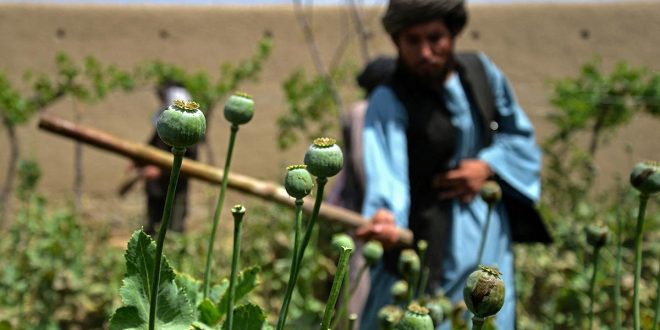KABUL – The Taliban authorities in Afghanistan’s northeastern Badakhshan province have arrested more than 100 farmers for cultivating poppies, the primary source of opium. The arrests were part of an intensified crackdown as Afghanistan grapples with soaring opium production despite the Taliban’s 2021 ban on poppy farming.
Shafiqullah Hafizi, the Taliban’s director of counter-narcotics in Badakhshan, confirmed the arrests, stating: “Our forces detained these individuals while they were cultivating poppies. They have been referred to Taliban courts for prosecution.”
The crackdown comes as a UN Office on Drugs and Crime (UNODC) report revealed a 30% rise in Afghanistan’s opium production this year compared to 2023, reaching 12,800 hectares. Estimated production in 2024 stands at 433 metric tons, worth $260 million—still significantly below record highs seen in 2022 but a concerning increase nonetheless.
The Taliban have called for international support to help farmers transition to alternative livelihoods. Sohail Shaheen, head of the Taliban’s political office in Doha, emphasized the urgency: “Afghan farmers need assistance and sustainable alternatives following the poppy ban. Implementing decisions from the Doha summit is critical.”
Some farmers are making the shift. One farmer, who turned to cotton cultivation, described it as a “clean” and “Islamic” livelihood. “Cotton is halal income. Poppy destroys lives, but this—this is white gold,” he said.
Despite the ban, Afghanistan remains a leading opium producer, feeding a global narcotics trade that has fueled conflict and instability for decades. Critics accuse some Taliban factions of profiting from the drug trade, allegations the group denies.
As Afghanistan seeks to navigate this complex issue, the tension between eradication efforts and the economic realities of impoverished farmers remains a significant hurdle
 Afghanistan Times
Afghanistan Times




